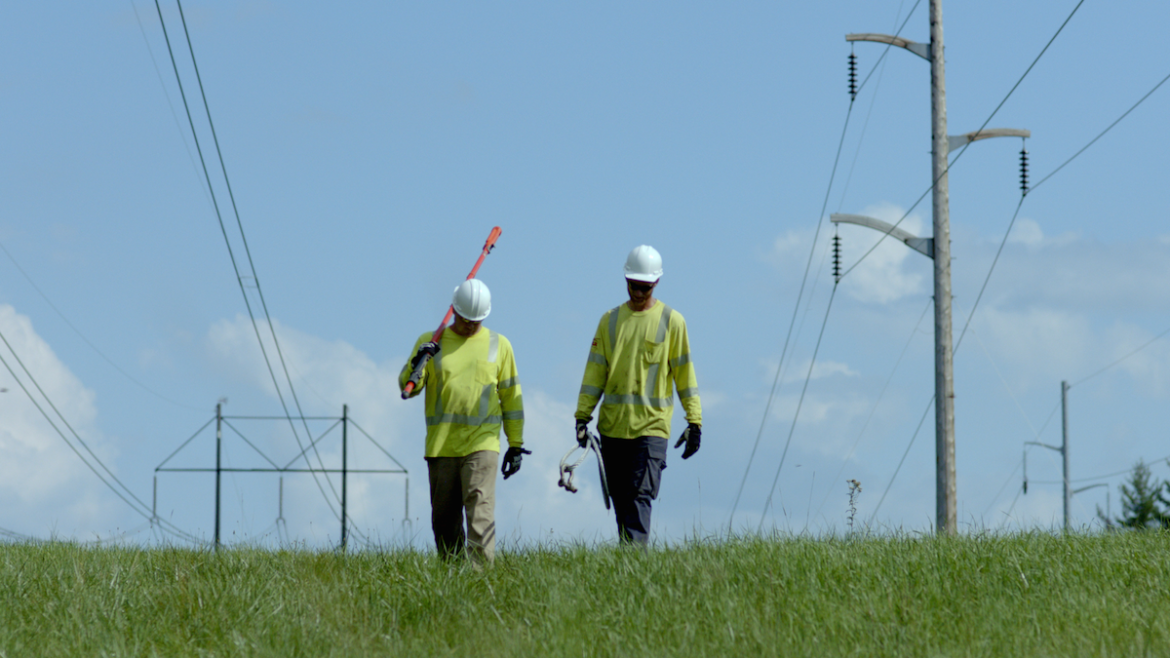As stated in today’s DOE decision, “The proposed DOE action in the final EIS is to issue a Presidential permit to the Applicant, Northern Pass LLC, to construct, operate, maintain, and connect a new electric transmission line across the U.S./Canada border in northern New Hampshire (NH).”
As stated in today’s DOE decision, “The proposed DOE action in the final EIS is to issue a Presidential permit to the Applicant, Northern Pass LLC, to construct, operate, maintain, and connect a new electric transmission line across the U.S./Canada border in northern New Hampshire (NH).” The FEIS also recognizes Northern Pass’ ability to help meet the region’s energy challenges. “In addition to diversifying the electricity supply, the utilization of low-carbon hydropower can help meet public policy goals to reduce greenhouse gas emissions.”
“We are extremely pleased that DOE has completed its FEIS and greatly appreciate the years of hard work by all of the experts involved in this thorough review of Northern Pass,” said Bill Quinlan, president of Eversource operations in New Hampshire. “As this clean energy project continues to advance through the final stages of the New Hampshire permitting process, we are encouraged to have reached this major federal permitting milestone. We are now another step closer to realizing the many benefits Northern Pass has to offer New Hampshire and the region.”
Highlights of the FEIS include:
- DOE concludes the proposed Northern Pass route is the “preferred alternative”
- New England will see a reduction of carbon emissions by 9 percent, or 2.5 million metric tons
- The “total average scenic impact” of Northern Pass is considered “low” to “very low”
- Northern Pass will create 6,747 jobs in New Hampshire during construction, as well as 901 permanent jobs
- During construction, Northern Pass will generate more than $734 million of additional economic output within New Hampshire
- New Hampshire will see an increase of $37 million in annual statewide property tax collections once Northern Pass is built
- There will be no “population-level effects to any protected species” due to Northern Pass
- Noise levels associated with Northern Pass during operation will be well below EPA guidance levels
- Northern Pass poses no health risks associated with EMFs
- There are no authoritative studies that demonstrate impacts on tourism from transmission lines. Tourism is affected more by factors such as the national economy and the price of gasoline
Northern Pass is now awaiting the issuance of its federal permits, including DOE’s Presidential Permit, a Special Use Permit from the U.S. Forest Service, and the Section 404 Permit from the U.S. Army Corps of Engineers. All major state and federal permits are expected in 2017, and all major contractor and equipment contracts are fully executed. Northern Pass will be substantially complete by the third quarter of 2020. Following testing, the line will be in service by the end of 2020.
“New Hampshire and the region are facing serious energy challenges, including having some of the highest electricity prices in the Continental United States,” said Quinlan. “Customers, businesses and elected officials have been calling for solutions, and the issuance of the FEIS positions NPT well to help address these critical challenges.”
Beyond its clean energy benefits and energy cost savings, Northern Pass will provide a number of benefits unique to New Hampshire, including millions annually in additional tax revenue to communities along the route; $7.5 million to the North Country Job Creation Fund to develop and retain jobs in the North Country; thousands of acres set aside for conservation, recreation and mixed-use; and the $200 million Forward NH Fund to support clean energy innovations, economic development, community investment, and tourism.
The Northern Pass transmission line begins at the Canadian border in Pittsburg, New Hampshire and extends 192 miles to Deerfield, New Hampshire where it connects to the New England grid. More than 80 percent of the line will be located along existing transmission corridors or buried along roadways to eliminate potential view impacts in the White Mountain National Forest area. Northern Pass will provide a robust, new interconnection path between the Québec and New England electric systems, and will be controlled by the regional system operator, ISO-New England.
Eversource (NYSE: ES) transmits and delivers electricity and natural gas to more than 3.6 million electric and natural gas customers in Connecticut, Massachusetts and New Hampshire. Recognized as the top U.S. utility for its energy efficiency programs by the sustainability advocacy organization Ceres, Eversource harnesses the commitment of its approximately 8,000 employees across three states to build a single, united company around the mission of safely delivering reliable energy and superior customer service. For more information, please visit our website (www.eversource.com) and follow us on Twitter (@EversourceCorp) and Facebook (facebook.com/EversourceEnergy).

